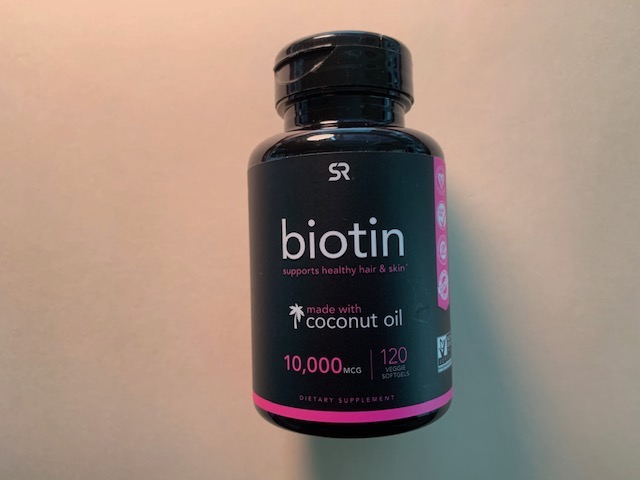Biotin - recognized as a bona fide vitamin
Biotin plays a critical role in several metabolic processes in the body
3/16/2024

Biotin, also known as vitamin B7 or vitamin H, is a water-soluble B-complex vitamin that plays a crucial role in various metabolic processes within the human body. Its discovery and subsequent recognition as a vital nutrient have significantly impacted both the medical and cosmetic industries. In this comprehensive article, we'll delve into the history, benefits, recommended methods of ingestion, and potential detriments associated with the use of biotin.
Historical Context
The history of biotin dates back to the early 20th century when scientists began investigating the role of various nutrients in human health. In 1927, scientists identified a substance in egg yolks that was crucial for the growth of yeast. They named this substance "biotin," derived from the Greek word "biotos," meaning life or sustenance.
Throughout the 20th century, researchers continued to unravel the importance of biotin in human physiology. In the 1940s, scientists discovered that a lack of biotin in the diet led to symptoms of dermatitis, hair loss, and neurological disorders. This finding highlighted the essential role of biotin in maintaining healthy skin, hair, and nervous system function.
By the 1970s, biotin had become recognized as a bona fide vitamin, essential for human health. Since then, numerous studies have elucidated its various functions and benefits, leading to its widespread use as a dietary supplement.
Benefits of Biotin
Biotin plays a critical role in several metabolic processes in the body, making it essential for overall health and well-being. Some of the key benefits of biotin include:
Promoting Healthy Hair, Skin, and Nails:
Biotin is often hailed for its role in maintaining the health of hair, skin, and nails. It supports the production of keratin, a protein that forms the structural foundation of these tissues. As a result, biotin supplementation is commonly used to improve the strength and appearance of hair, promote nail growth, and support healthy skin.
Metabolic Support:
Biotin is involved in the metabolism of carbohydrates, fats, and proteins. It acts as a coenzyme in various enzymatic reactions that are essential for converting food into energy. By facilitating these metabolic processes, biotin helps maintain energy levels and supports overall metabolic health.
Regulating Blood Sugar Levels:
Some research suggests that biotin may play a role in regulating blood sugar levels by enhancing the body's utilization of glucose. This can be particularly beneficial for individuals with diabetes or insulin resistance.
Supporting Neurological Function:
Biotin is involved in the synthesis of neurotransmitters, which are essential for proper brain function. Adequate biotin levels may help support cognitive function and protect against neurological disorders.
Best Methods of Ingestion
Biotin is available in various forms, including dietary sources, supplements, and topical preparations. The best method of ingestion may depend on individual preferences and health goals. Here are some common ways to incorporate biotin into your diet:
Dietary Sources:
Biotin is naturally found in many foods, including egg yolks, nuts, seeds, meat, fish, dairy products, and certain vegetables such as sweet potatoes and spinach. Consuming a balanced diet that includes these foods can help ensure an adequate intake of biotin.
Supplements:
Biotin supplements are widely available in capsule, tablet, and softgel forms. These supplements typically provide high doses of biotin, ranging from 1,000 to 10,000 micrograms (mcg) per serving. It's essential to follow the recommended dosage guidelines provided by the manufacturer and consult with a healthcare professional before starting any new supplement regimen.
Topical Treatments:
Biotin-infused shampoos, conditioners, and hair serums are popular among individuals seeking to improve the health and appearance of their hair and scalp. While topical biotin treatments may offer some benefits, their efficacy in delivering biotin to the hair follicles is still debated among experts.
Potential Detriments and Side Effects
While biotin is generally considered safe for most people when taken at recommended doses, excessive intake may lead to potential detriments and side effects. Some of these include:
Interference with Lab Test Results:
High doses of biotin supplements can interfere with certain laboratory tests, such as those used to measure thyroid function and cardiac biomarkers. This interference can result in inaccurate test results, leading to misdiagnosis or unnecessary medical interventions.
Allergic Reactions:
Although rare, some individuals may experience allergic reactions to biotin supplements, resulting in symptoms such as skin rashes, itching, swelling, or difficulty breathing. Anyone experiencing severe allergic symptoms should seek medical attention immediately.
Digestive Issues:
In some cases, high doses of biotin supplements may cause digestive issues such as nausea, diarrhea, or cramping. These symptoms are typically mild and temporary but may warrant a reduction in dosage or discontinuation of supplementation.
Interaction with Medications:
Biotin supplements may interact with certain medications, including anticonvulsants, cholesterol-lowering drugs, and antibiotics. It's essential to consult with a healthcare professional before taking biotin supplements, especially if you're currently taking any medications.
Biotin is a vital nutrient that plays a crucial role in various metabolic processes within the body. Its benefits extend beyond promoting healthy hair, skin, and nails to supporting overall metabolic health and neurological function.
While biotin supplementation can be beneficial for many individuals, it's essential to consume it in moderation and under the guidance of a healthcare professional to avoid potential detriments and side effects. By understanding the history, benefits, and best methods of ingestion of biotin, individuals can make informed decisions about incorporating this essential nutrient into their daily regimen for optimal health and well-being.






